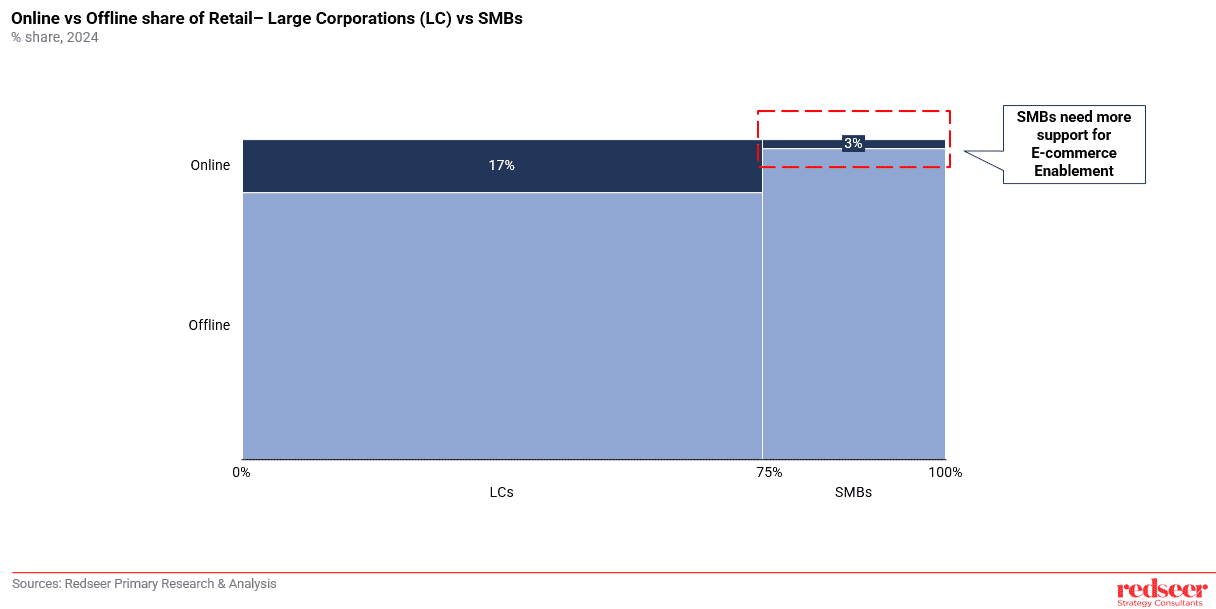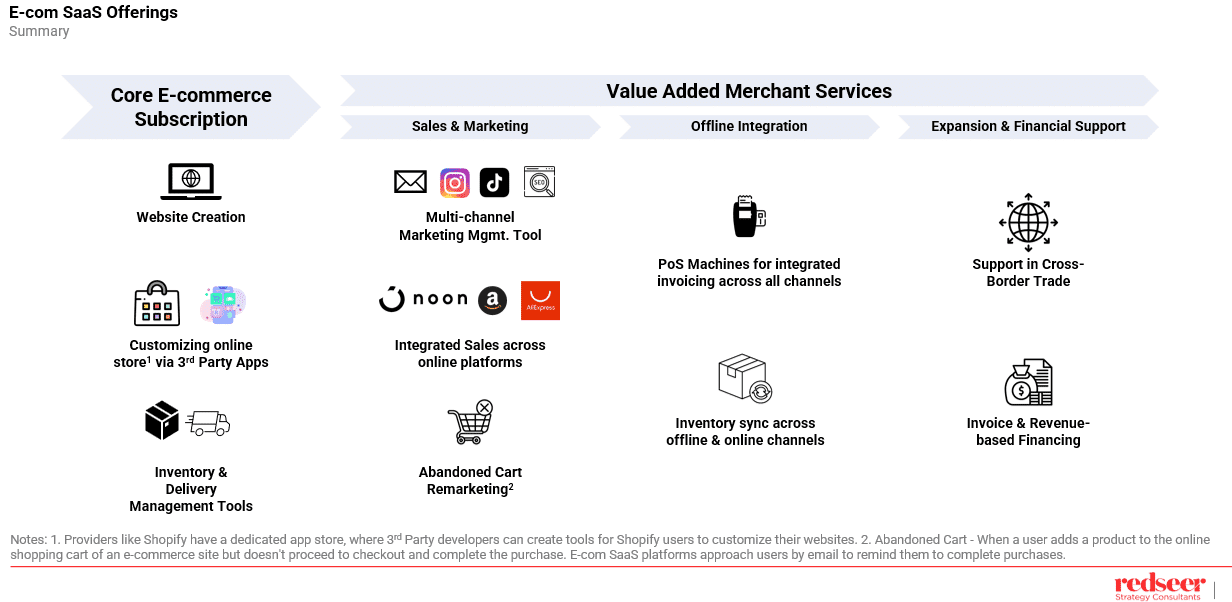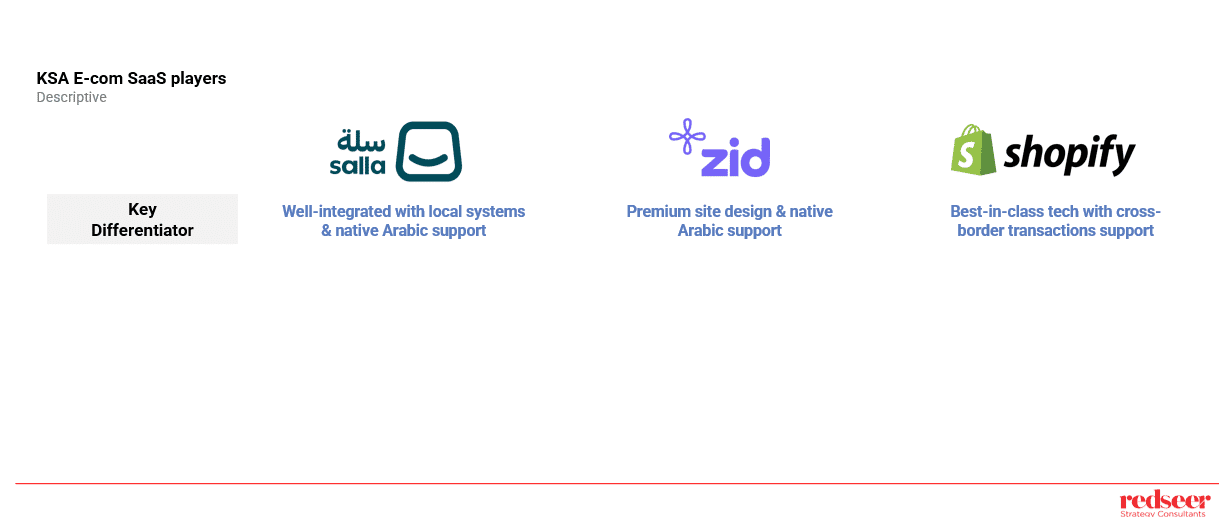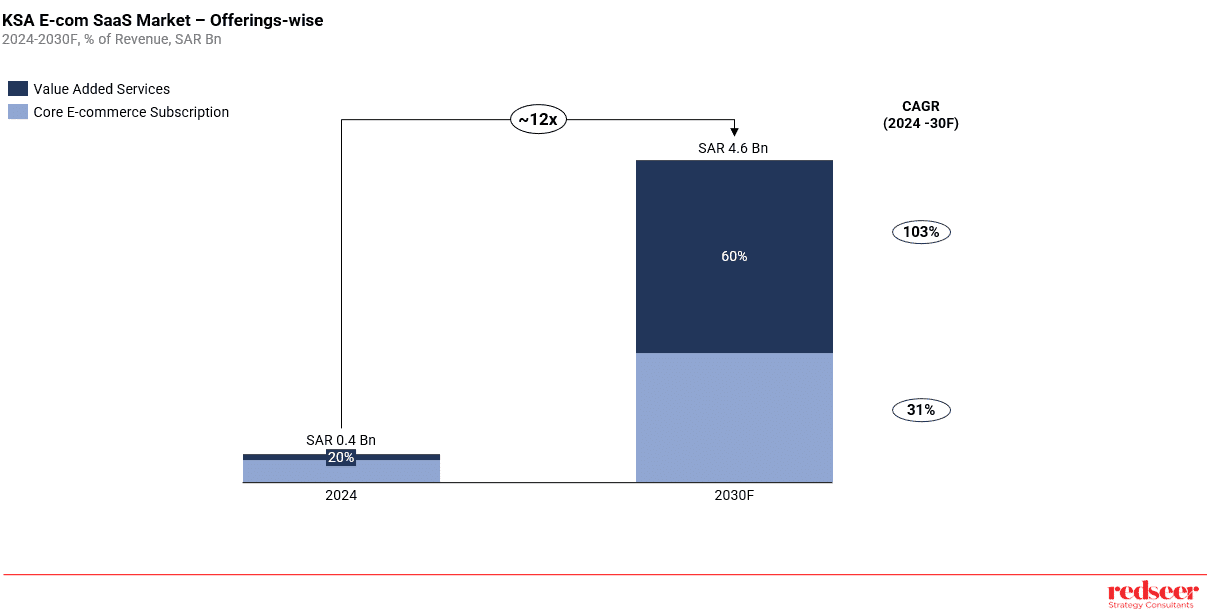
The Rise of E-commerce Enablement SaaS
Saudi Arabia’s e-commerce ecosystem is undergoing a transformation, with SMBs increasingly looking to build their digital presence, yet still facing many barriers to entry. Traditional web development remains costly and complex, leaving many small businesses offline. E-commerce Enablement SaaS (E-com SaaS) platforms are stepping in to bridge this gap, offering all-in-one solutions that simplify launching and scaling online stores.
We solve the strategy behind scale!
In this article, we explore four key trends shaping the rise of E-com SaaS in Saudi Arabia and its role in unlocking SMB growth.
- SMBs lag significantly behind large corporations in adopting online channels, limiting their digital growth potential
- E-commerce Enablement SaaS (E-com SaaS) platforms are stepping in to bridge this gap with their comprehensive offerings
- Three key players dominate space. Shopify excels in cross-border expansion, while Salla and Zid provide stronger local support tailored for MENA businesses
- In Saudi Arabia, the E-com SaaS market is poised for massive growth, with potential to expand tenfold to ~SAR 5 Bn by 2030
SMBs lag significantly behind large corporations in adopting online channels, limiting their digital growth potential
While large corporations thrive online, SMBs lag, struggling to establish a digital presence. High costs, technical complexity, and lack of expertise make e-commerce adoption challenging. Many SMBs find traditional web development agencies too expensive for the value provided, making online expansion costly and inefficient. Without the right tools, they miss out on digital growth opportunities, highlighting the need for accessible e-commerce enablement solutions.

E-commerce Enablement SaaS (E-com SaaS) platforms are stepping in to bridge this gap with their comprehensive offerings
To address the barriers SMBs face, E-commerce Enablement SaaS (E-com SaaS) platforms are stepping in as all-in-one solutions. These platforms offer ready-to-use templates, payment integrations, logistics support, and marketing tools, making it easier and more affordable for SMBs to launch and manage online stores.
By removing the need for custom development and stitching together multiple vendors, E-com SaaS is simplifying the journey to digital—empowering SMBs to compete online, reach new customers, and grow their business with confidence.

Three key players dominate space – Shopify excels in cross-border expansion, while Salla and Zid provide stronger local support tailored for MENA businesses
The E-com SaaS space is led by three standout players, each serving distinct needs. Shopify is the go-to platform for SMBs looking to expand beyond borders, offering robust tools for global selling. In contrast, Salla and Zid focus on local enablement, providing Arabic-first platforms, regional integrations, and tailored support for businesses in MENA.
Together, they’re shaping a diverse ecosystem—empowering merchants to choose solutions aligned with their growth stage and market focus.

In Saudi Arabia, the E-com SaaS market is poised for massive growth, with potential to grow tenfold reaching ~SAR 5 Bn by 2030
Saudi Arabia’s E-commerce SaaS market is set for explosive growth. What began as a core subscription-based model is rapidly evolving into a broader ecosystem, with value-added services like payments, logistics, and marketing tools driving most of the future revenue.
As more SMBs come online, demand for end-to-end digital support is accelerating, positioning E-com SaaS platforms as critical enablers of the Kingdom’s digital economy.

